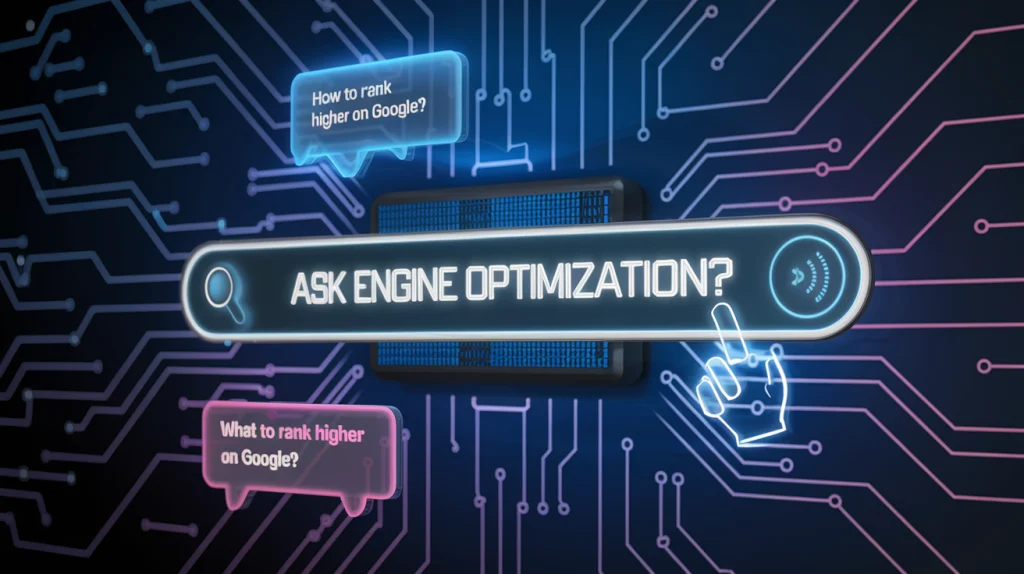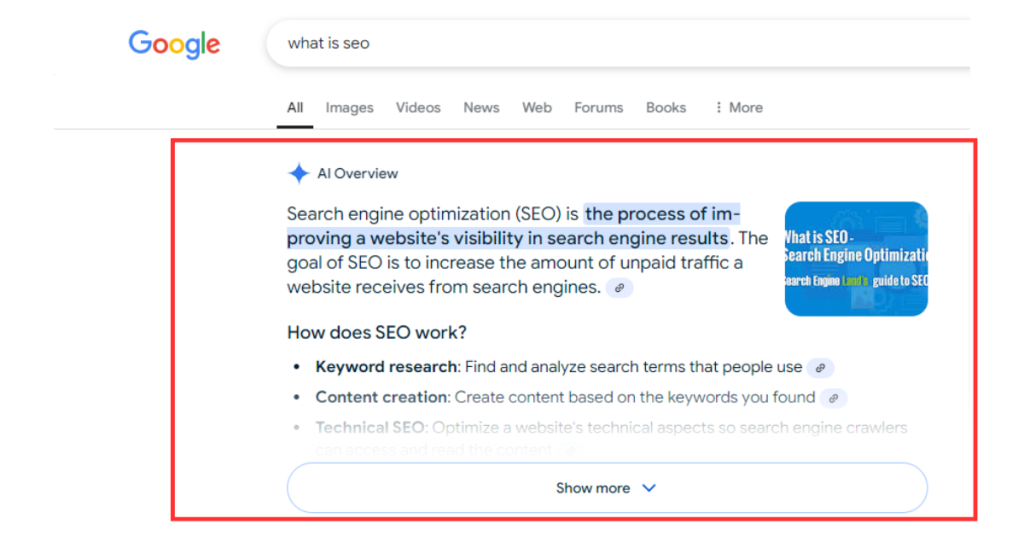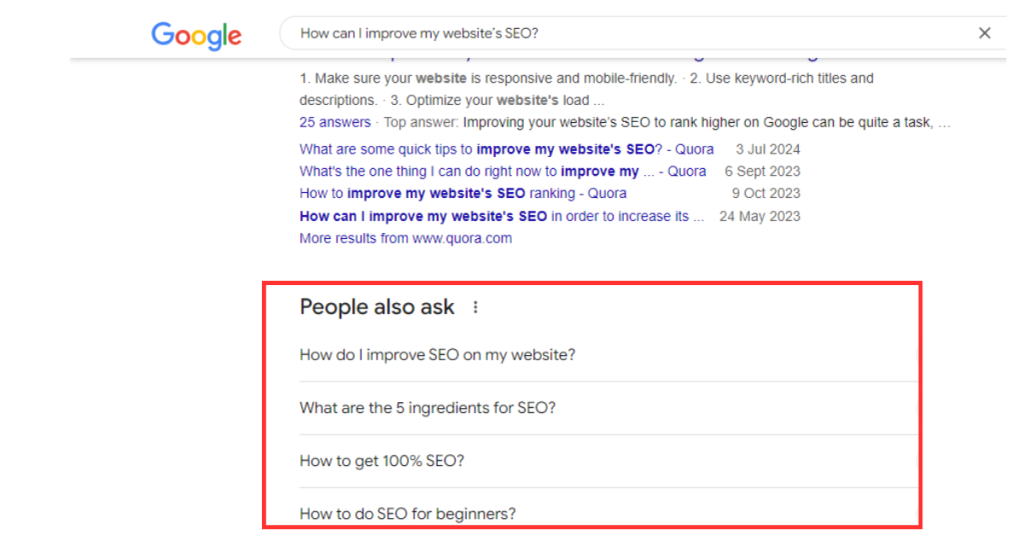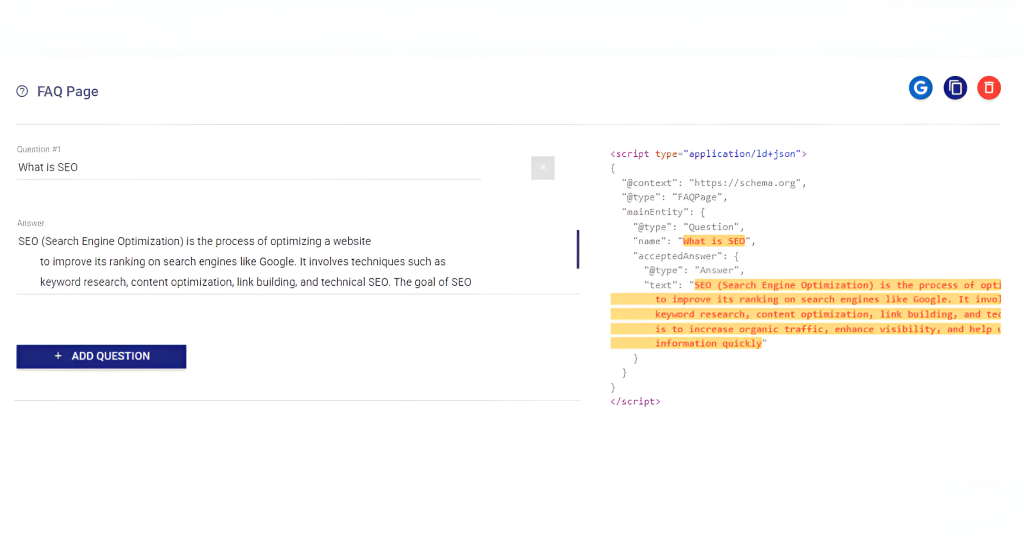Ask Engine Optimization (AEO)

Search engines are changing the way they work. In the past, people typed in keywords, and search engines gave them a list of websites. Now, search engines try to answer questions directly without making users click on different links.
This new trend is called Ask Engine Optimization (AEO). Instead of just optimizing for keywords, AEO focuses on providing direct answers that search engines can display at the top of results. Businesses and website owners must adapt to this new way of search to stay visible.
What is Ask Engine Optimization (AEO)?
Ask Engine Optimization (AEO) is the process of optimizing content to answer user questions directly. Unlike traditional SEO, which focuses on ranking pages, AEO helps websites appear in featured snippets, voice search results, and AI-generated answers.

For example: if someone searches “What is SEO?”, Google may show a direct answer instead of just listing blog posts. Websites that provide clear, structured, and accurate answers are more likely to appear in these top positions.
Traditional SEO vs Ask Engine Optimization (AEO)
Traditional SEO and Ask Engine Optimization (AEO) have the same goal: “to help websites rank higher in search results. However, the way they achieve this goal is different“.
- Traditional SEO:
In traditional SEO, websites focus on keywords, backlinks, and on-page optimization to rank on Google’s search results page. The goal is to bring users to a website, where they can read articles, buy products, or explore services. SEO experts use strategies like meta tags, keyword optimization, link building, and technical SEO to improve rankings.
- AEO:
Ask Engine Optimization (AEO) focuses on answering user questions directly. Instead of just ranking a webpage, AEO ensures that search engines can extract and display relevant information from a website. The goal is to appear in featured snippets, voice search results, and AI-generated answers, even if users don’t visit the website.
Key Differences Between Traditional SEO and AEO
| Aspect | Traditional SEO | Ask Engine Optimization (AEO) |
|---|---|---|
| Focus | Ranking pages for keywords | Providing direct answers to user questions |
| Goal | Drive traffic to a website | Appear in featured snippets & voice search |
| Search Intent | Keywords & search phrases | Question-based queries |
| Content Format | Long blog posts & keyword-rich pages | Short, structured answers with FAQs |
| Optimization Techniques | Meta tags, backlinks, on-page SEO | Featured snippets, schema markup, AI-driven search |
| User Behavior | Users click on search results to find answers | Users get direct answers from search engines |
| Best For | Blogs, service pages, product listings | AI-driven search, voice search, zero-click searches |
Why Search is Moving Towards Ask Engines
Search engines are no longer just ranking websites, they are answering questions. Several factors have led to this change.
- AI and machine learning are improving search algorithms. Tools like Google’s Search Generative Experience (SGE), ChatGPT, and Bard are designed to understand and respond to user queries instantly.
- Voice search is increasing. People now use voice assistants like Alexa, Siri, and Google Assistant to ask questions. Voice searches are often conversational, meaning search engines must provide direct, human-like answers.
- Zero-click searches are becoming more common. Many users get their answers without clicking any website because Google displays them directly. If websites don’t optimize for AEO, they risk losing traffic.
Strategies To Optimize for Ask Engines
Featured snippets are the short answers Google shows at the top of search results. They are often used in voice search and AI-generated responses.
How to rank in featured snippets?
- Answer the question directly in the first few sentences.
- Use bullet points, numbered lists, or tables for structured answers.
- Keep answers concise (40-60 words).
- Use FAQ schema markup to make it easier for search engines to extract answers.
Example:
Question: What is SEO?
Optimized Answer: SEO (Search Engine Optimization) is the process of improving a website’s ranking on search engines to attract more visitors. It involves keyword optimization, content creation, and link building.
2. Use Question-Based Keywords
People now ask full questions instead of just typing short keywords. Instead of searching “SEO tips,” users now search “how can I improve my website’s SEO?”

How to find the right question-based keywords?
- Check Google’s “People Also Ask” (PAA) section.
- Use AnswerThePublic to find common user queries.
- Target long-tail keywords that reflect natural questions (e.g., “How does SEO work?” instead of just “SEO”).
Once you have these keywords, answer the queries within your content to improve your chances of appearing in search results.
3. Write Clear and Concise Answers
Ask Engines prefer short, clear, and well-structured answers. Long, complex paragraphs won’t rank as well for AI-generated search or voice search.
Best practices for writing answers:
- Keep your sentences short and to the point.
- Write in a conversational tone (like explaining to a 6th grader).
- Avoid jargon and technical language.
- Structure content with subheadings (H2s, H3s), FAQs, and summaries.
4. Optimize for Voice Search
Voice search is growing fast. People speak in full sentences, so content should match natural conversation styles.
How to optimize for voice search?
- Use conversational phrases (e.g., “What is the best way to improve SEO?”).
- Provide quick answers (under 30 words for the first response).
- Use schema markup to help search engines understand the content.
- Make sure your site is mobile-friendly since most voice searches happen on mobile devices.
5. Improve E-E-A-T (Expertise, Experience, Authoritativeness, and Trustworthiness)
Google ranks websites higher when they show expertise and trustworthiness. AI-powered search tools prefer credible sources when providing answers or solutions to their users.
How to improve E-E-A-T?
- Write well-researched content with accurate facts.
- Add author bios and showcase credentials on expert topics.
- Get backlinks from trusted sources.
- Cite reliable sources to increase credibility.
This helps search engines trust your content, making it more likely to be featured in direct answers and AI responses.
6. Use Structured Data and Schema Markup
Schema markup helps search engines understand webpage content better by adding structured data. Improve search visibility by enabling rich results like FAQs, reviews, and featured snippets. By adding schema markup, you make it easier for AI-driven search tools to extract answers.
To generate schema for your webpage, you can use technicalseo.com

- FAQ Schema – Helps Google display question-based answers.
- How-To Schema – Great for step-by-step guides.
- Q&A Schema – Works well for forums and community-based sites.
Adding schema markup improves your chances of appearing in rich results and voice search answers.
7. Create Content for AI-Powered Search
AI-driven search tools like Google’s Search Generative Experience (SGE), ChatGPT, and Bard rely on high-quality human-written content. Websites must optimize for AI search to remain relevant.
Best practices for AI search optimization:
- Write fact-based, well-organized content.
- Avoid AI-generated fluff – AI tools prefer real expert insights.
- Use structured data to help AI understand your content.
- Update your content regularly to keep information fresh.
- Ensure factual accuracy to avoid misinformation penalties.
The Future of Ask Engine Optimization
Search engines will continue to evolve. AI-powered search experiences, voice assistants, and instant answers will become even more popular. Websites that fail to adapt to AEO will struggle to stay visible.
In the future, Google and other search engines will likely reduce traditional rankings and instead show direct answers more often. Businesses must focus on answering questions clearly rather than just targeting keywords.
Summary
Ask Engine Optimization (AEO) is not just another SEO trend—it is the future of search. As AI and voice search grow, people expect quick, direct answers instead of clicking on multiple websites.
To stay ahead in search results, websites must:
- Write clear and structured answers.
- Optimize for featured snippets and AI search.
- Focus on question-based, conversational content.
- Improve authority and trustworthiness.
By adopting AEO strategies now, businesses can stay ahead of the competition and remain visible in search results. The future of SEO is all about answering questions, not just ranking pages.
FAQs
1. What is Ask Engine Optimization (AEO) in simple terms?
Ask Engine Optimization (AEO) is about optimizing content to answer user questions directly in search results. Instead of just ranking pages, AEO helps websites appear in featured snippets, voice search, and AI-generated answers. This makes it easier for people to get information without clicking on multiple links.
2. How is AEO different from traditional SEO?
Traditional SEO focuses on ranking pages based on keywords and backlinks, while AEO focuses on providing direct answers. AEO is more about helping search engines extract useful information and showing it instantly in search results. Both are important, but AEO is more useful for voice search, AI search, and zero-click results.
3. Will AEO replace traditional SEO?
No, AEO will not replace traditional SEO, but it will change how websites compete in search results. Businesses still need on-page SEO, link building, and keyword optimization, but they also need to optimize for direct answers and featured snippets. Combining both strategies will give the best results.
4. How do I optimize my content for Ask Engines?
Start by writing clear, concise answers to common questions in your niche. Use structured formats like bullet points, numbered lists, and FAQ sections. Also, add schema markup (FAQ schema, How-to schema) to help search engines understand your content better.
5. Why is my website not showing in featured snippets?
Your content might not be clear, structured, or optimized for question-based queries. Make sure you use direct answers (40-60 words), add proper headings (H2/H3), and structure content in a way that Google can easily extract. Also, check your competitors’ featured snippets and improve your answers.
6. Does AEO matter if I am not using voice search?
Yes! AEO is not just for voice search; it also helps with Google’s AI-generated answers, featured snippets, and zero-click searches. Even if people are typing their queries, Google still prefers clear, structured answers in search results.
7. Can AI-generated content help with AEO?
AI-generated content can help, but it needs to be reviewed and improved by a human. Search engines prioritize accurate, high-quality, and fact-checked information. Using AI tools like ChatGPT is fine, but make sure your content is original, well-structured, and reliable.
8. What are common mistakes people make with AEO?
- Not answering questions clearly (too long or too complex).
- Ignoring structured data markup, like FAQ schema.
- Focusing only on keywords instead of answering real user questions.
9. Does AEO work for e-commerce websites?
Yes! E-commerce websites can use AEO to rank for product-related questions. Adding FAQs, product descriptions with clear answers, and schema markup helps search engines display product features, reviews, and quick answers in search results.
10. How long does it take to see results with AEO?
It depends on competition, content quality, and how well your answers are structured. Some websites see results in weeks, while others may take months to get featured snippets. Keep optimizing, tracking performance, and improving your content for better visibility.
